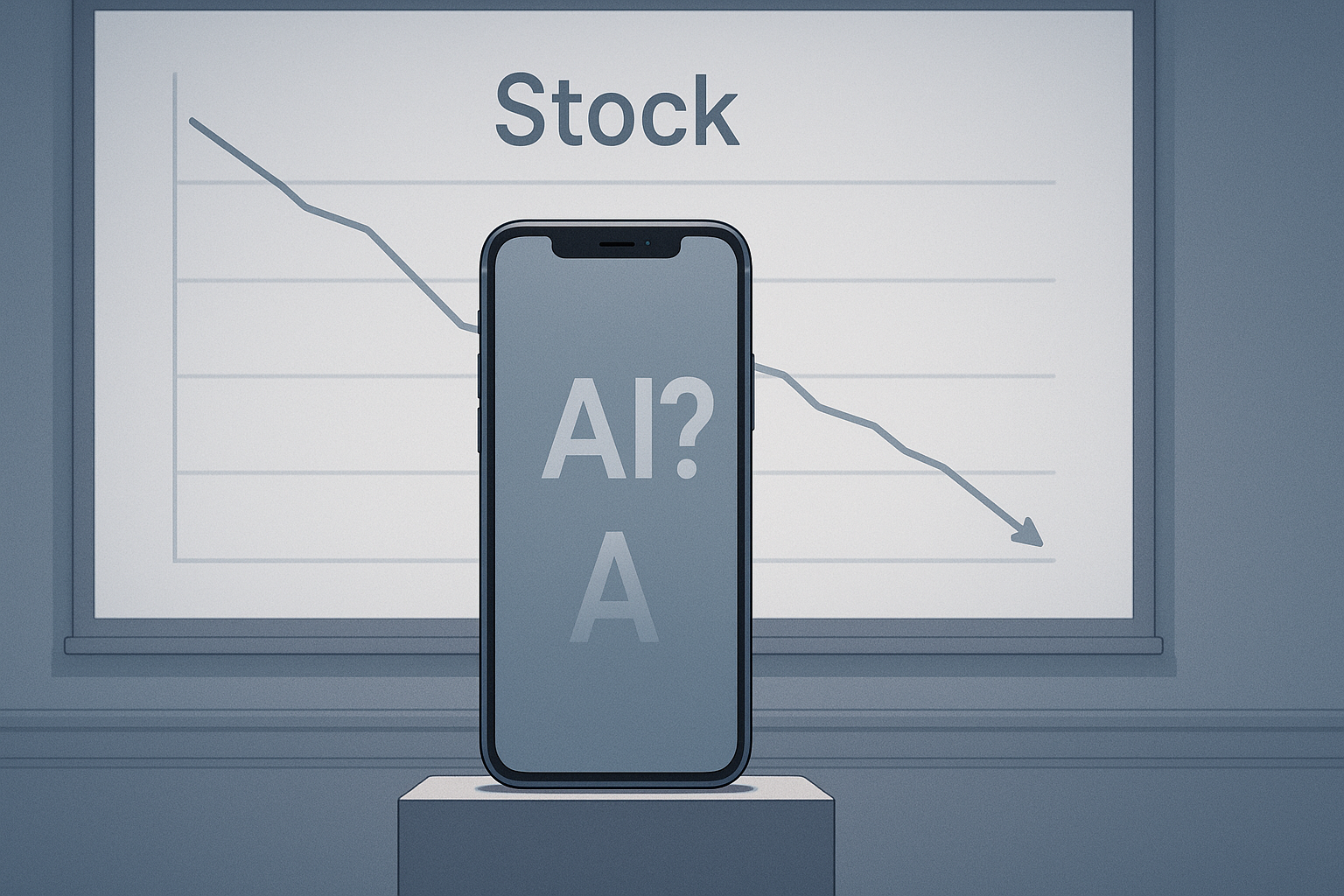The Apple product event has come and gone. And—surprise, surprise—the stock dropped 3% afterward. It's a tradition almost as reliable as turkey at Thanksgiving or my neighbor's car alarm going off at 2 AM on weekends.
We've seen this movie before. Apple unveils products with incremental improvements, investors collectively yawn, the stock takes a predictable dip, then life returns to normal. Rinse and repeat.
But this time? Something feels... off.
I've been covering Apple events since the iPad mini was considered cutting-edge technology, and there's a different energy surrounding this latest round of announcements. The company rolled out its freshest iPhone iterations, tweaked AirPods, and refreshed Apple Watches with all the expected fanfare and polished presentation we've come to expect from Tim Cook and company.
Here's the problem: It's 2024, and these just aren't the products driving tech valuations to the moon anymore. The market is hungry—starving, actually—for AI innovation, and on that front, Apple seems to be fashionably late to a party where some guests are already looking for their coats.
Look, Apple has perfected the art of the incremental upgrade. Give consumers just enough new features to justify dropping a thousand-plus dollars every few years, but never so much that you can't save something juicy for next year's model. It's product development as an annuity stream, and my God, has it generated mountains of cash.
But the AI revolution isn't playing by Apple's carefully crafted rulebook.
While Microsoft has integrated OpenAI into practically everything (I half-expect my Microsoft Word to start offering therapy sessions at this point), and Google has rushed Gemini into its ecosystem with mixed results, Apple has been... what's the word? Contemplative. Cautious. Possibly even behind.
Their partnerships with OpenAI and other AI firms haven't produced much visible fruit in consumer products. After attending the event and speaking with several analysts afterward, the sentiment was universal: "Where's the beef?" as one particularly hangry financial analyst put it to me.
This matters because the iPhone—still the company's golden goose—faces twin challenges that would keep any product manager up at night: market saturation and longer replacement cycles. Without some compelling AI-driven reason to upgrade, consumers might just stick with their perfectly functional three-year-old devices a bit longer. (I'm typing this on an iPhone 12, and honestly? It works fine.)
Now, let's not write Apple's obituary just yet. That would be premature and, frankly, stupid.
This is still a company sitting on $162 billion in cash and marketable securities—a number so large it's practically abstract. They enjoy brand loyalty that religious institutions would envy and an ecosystem that keeps customers locked in more effectively than Hotel California. Their methodical approach to new technology has often paid off handsomely—they weren't first to smartphones, tablets, or smartwatches either, but they defined each category.
There's also something refreshing about not rushing half-baked AI features to market just to slap an "AI-powered" label on the box. Samsung, I'm looking directly at you and your "AI-enhanced" photo filters that... adjust contrast?
But markets aren't patient, and neither are tech cycles. Having tracked Apple's strategy shifts since the early 2010s, I can tell you the concern for long-term holders isn't that Apple can't develop compelling AI products—it's whether they can do it quickly enough to maintain their premium position in consumers' minds and pocketbooks.
For investors who've enjoyed Apple's remarkable run, this moment presents a genuine quandary. The company still generates prodigious cash flow, trades at a not-insane multiple compared to some tech darlings (ahem, Nvidia), and has a history of confounding skeptics. But there's this nagging sense that for the first time in a while, Apple is reacting to technology trends rather than defining them.
Perhaps the more interesting question isn't whether Apple remains a good long-term holding, but rather what percentage of your portfolio it should command. The case for some exposure remains strong; the case for outsized exposure? That's getting... complicated.
If Apple's AI strategy finally emerges with the polish and integration we've come to expect—and I've spoken with several former Apple engineers who believe it will—today's concerns will look laughably overblown. If not, that 3% post-event dip might be the first note of a longer, more concerning melody.
Either way, one thing remains certain: the market will continue its habit of overreacting to product events while underappreciating the power of Apple's ecosystem. Some things never change, even when everything else does.
